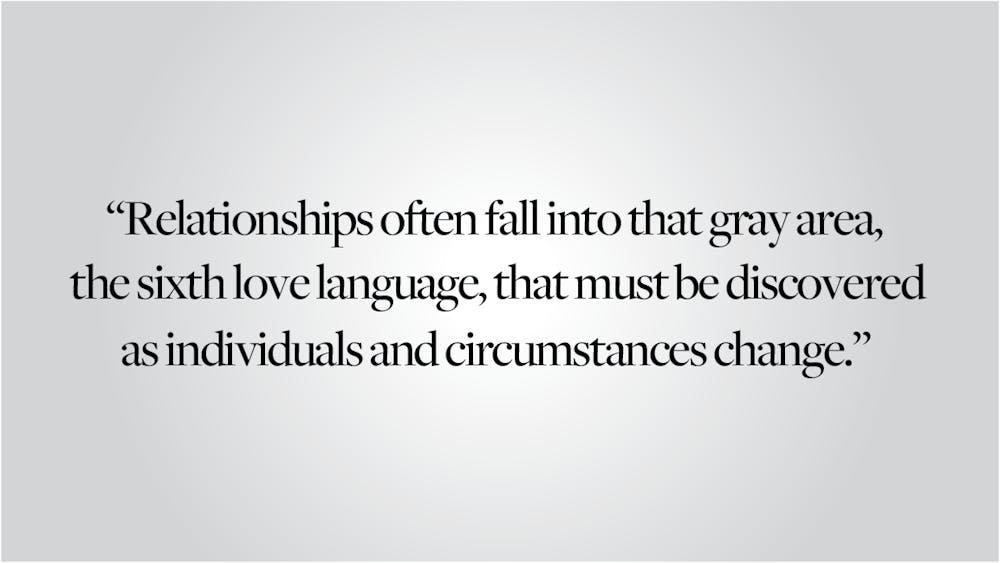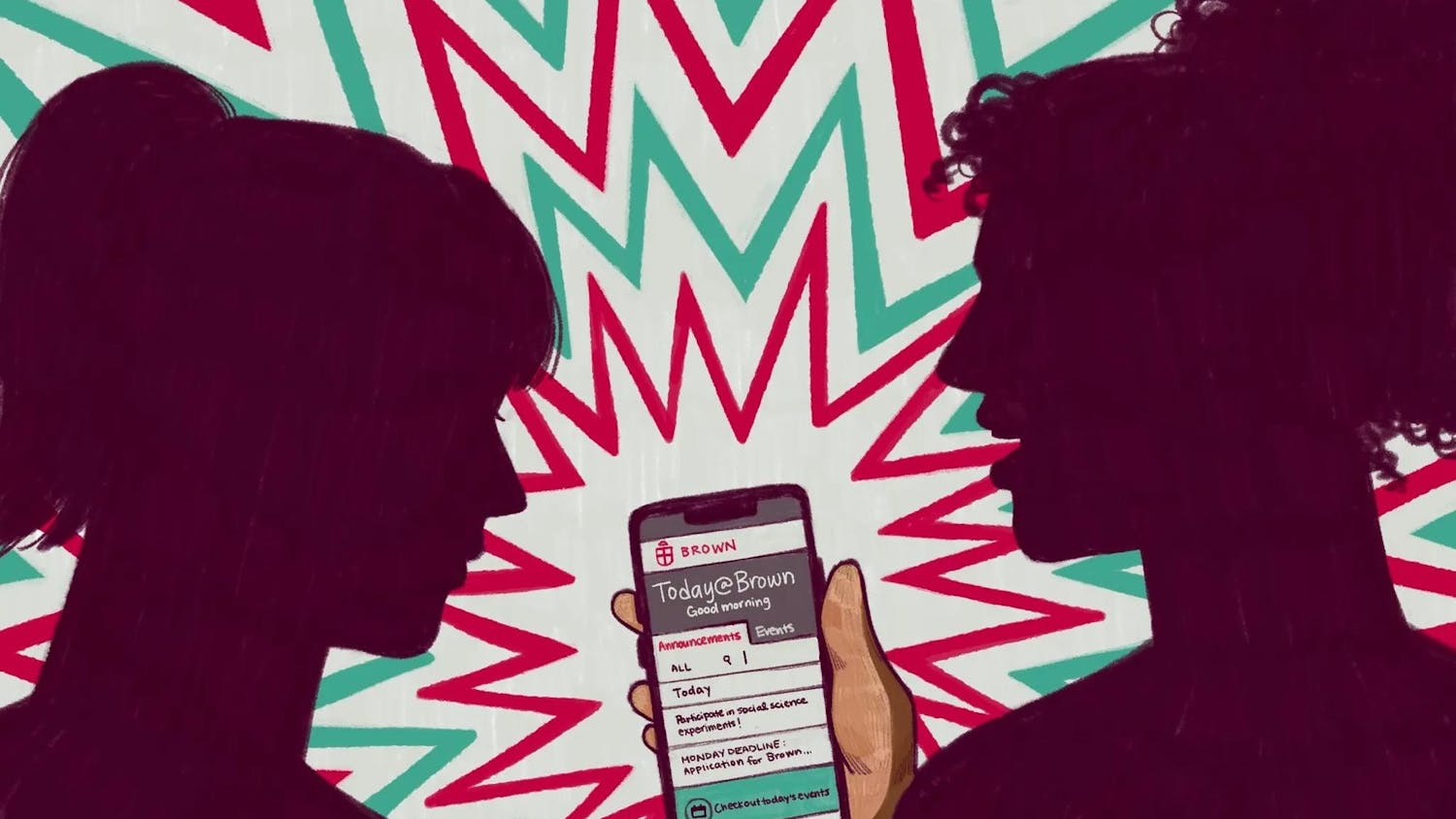When it comes to love, words often fail us. Some articulate love as warmth, others as “a madness of delight; an obsession.” My favorite description of love, from Iris Murdoch, is “the extremely difficult realization that something other than oneself is real.” Yet no words can quite capture love in the universal sense, as we all feel and express it so differently.
Enter “The Five Love Languages” by Gary Chapman. He proposes that humans express love, both romantically and platonically, in five ways — words of affirmation, acts of service, receiving gifts, quality time and physical touch. While all are important, different people prioritize different categories. For those who prefer words of affirmation, a sweet card or compliment makes all the difference. Acts of service, like a roommate offering to clean up when you’re sick or a friend delivering Jo’s for your upcoming all-nighter, work best for others. Lovers of quality time may stealthily turn a quick catchup into a five-hour FaceTime call.
Understanding someone’s love language is a powerful skill. Not only can you make them feel loved, but you’re more likely to notice when they try to return the favor. However, for many, the five categories feel incomplete. I propose a sixth love language that fills in the gaps: a new and detailed language tailored to each person’s specific relationships and circumstances.
Many people have their own interpretations of how this sixth love language manifests. One psychologist, Patrick Wanis, proposed that food is the sixth, universal love language. “When you’re preparing food for your partner,” he explains, “you’re thinking about their unique tastes, preferences and desires, and the end goal is to make your partner wholly happy with a customized experience.” He argues that the inherent intimacy and even eroticism in nourishing your partner makes food an international expression of love that transcends age and culture.
In another article, New York Times contributor Layla Kinjawi Faraj suggested “WhatsApp intimacy” as her sixth love language. She described the pain of being separated from her extended family by the Syrian War and how they cared for each other in spite of their distance. In lieu of the five love languages, they expressed love by sharing intimate moments of their lives — spilled juice, a bruised leg, a perfectly ripe avocado — in a WhatsApp family group chat.
The list of potential sixth languages goes on and on. To me, the sixth would be inclusion — I feel loved when I notice others making space for me in their lives and thoughts. As a sophomore in college, being on my own can still feel overwhelming. To know that the people I care about are looking out for me despite their own busy lives means a lot.
If so many of us insist we have found a sixth love language, the true list of possibilities must be infinite. This points out a limitation in Chapman’s initial work: The five love languages are common and crucial practices in relationships, but they hardly break the surface of what it means to express care for a friend, lover or family member. There is an intangible factor that makes every bond delicate and distinct — like a single snowflake. It hardly seems plausible that they are all encompassed by the same five generic forms of expression.
Instead, relationships often fall into that gray area — the sixth love language — that must be discovered by individuals as relationships and circumstances change. Right now, during the autumnal adjustment period between home and college, the situations of many college students are especially in flux. We are making new friends, reuniting with old and grappling with newfound distance from those we love at home. Try to notice your sixth love language where it appears. You may find out how to go beyond the five basic love languages to the unique, specialized ways that you and your loved ones best care for each other.
Eva Schiller ’25 can be reached at eva_schiller@brown.edu. Please send responses to this opinion to letters@browndailyherald.com and other op-eds to opinions@browndailyherald.com.





